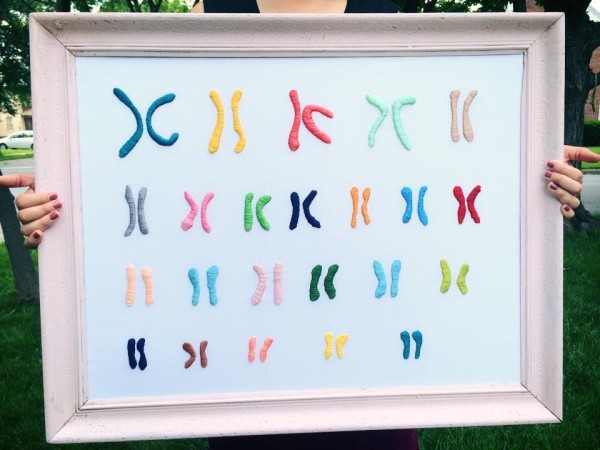AIS (Androgen Insensitivity Syndrome), previously known as testicular feminization, is a genetic disorder that makes people who are genetically male (have one X and one Y chromosome) resistant to male hormones called androgens (due to a loss-of function mutation in the androgen receptor gene on the X chromosome). The person then has the physical characteristics of a normal female, despite having the genetic makeup of a male. There are two types of AIS: complete AIS and incomplete AIS.
Complete AIS prevents the development of the penis and other male body parts; the child appears to be a girl. This occurs in about 1 in 20,000 live births. A person with complete AIS appears to be female, but has no uterus and little armpit or pubic hair. When puberty begins, secondary sex characteristics may develop (such as breasts), but menstruation and fertility do not.
Sexual ambiguity varies in patients with incomplete AIS. People who have incomplete AIS may also have Reifenstein syndrome, which is associated with breast development in men, undescended testes, and hypospadias, (where the urethra opens on the underside of the penis instead of the tip). There may be a vagina (no cervix or uterus) or the testes may be in the abdomen. Sometimes, an internal lump may be discovered to be the testes during an unrelated surgery in the area.
Typically, complete AIS is rarely discovered during childhood, the only exception being an internal testicle. Most people with this condition are not diagnosed until they fail to menstruate. Incomplete AIS can be discovered early on because the person may have distinguishable male and female characteristics.
Tests used in diagnosis include:
- blood tests to check levels of testosterone, luteinizing hormone (a hormone that stimulates ovulation in females), and follicle-stimulating hormone (a hormone that triggers the growth and development of the follicle during the menstrual cycle)
- genetic testing (karyotyping) to find whether there is a Y chromosome
- pelvic ultrasound
Image Source: Tom & Dee Ann McCarthy
The prognosis for complete AIS is good if at-risk testicular tissue is removed at the proper time. The outlook for incomplete AIS depends on the presence and severity of ambiguous genitalia. However, complications include testicular cancer, infertility, and psychosocial issues.
After a child completes puberty and growth is complete, the testes may be removed in order to prevent cancer. Estrogen replacement is often prescribed after puberty. Therapy is also recommended.
Treatment and gender assignment can be a sensitive matter and should be handled with care and respect. You can find a testimony of a person with androgen insensitivity syndrome here.
Featured Image Source: Female Karyotype by Hey Paul Studios










